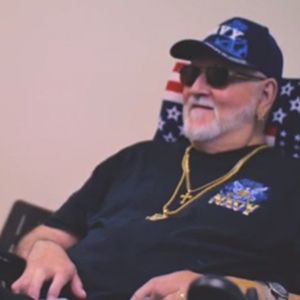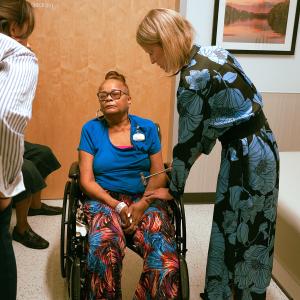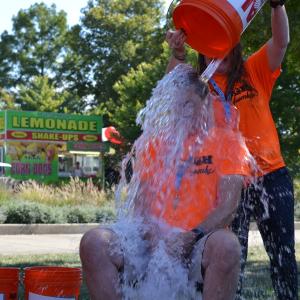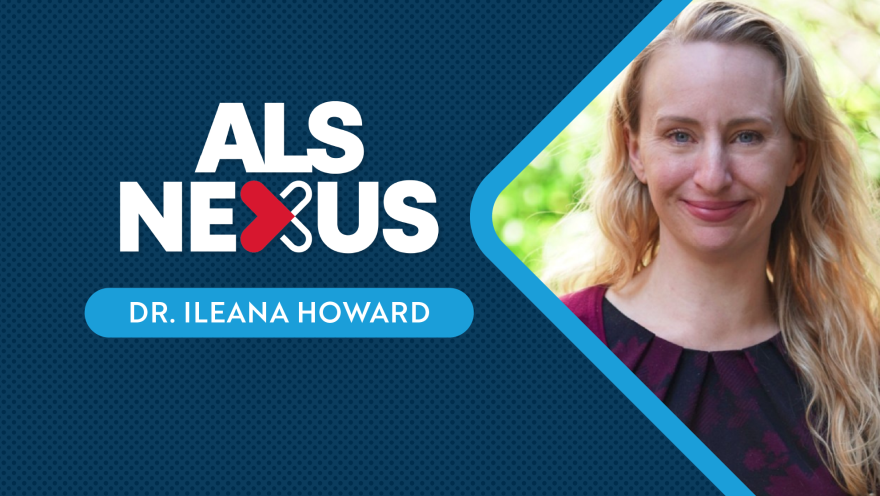We know ALS multidisciplinary clinics provide the best level of care for people living with the disease, helping to improve and extend lives. However, due to geography, logistics, and sometimes cost, many people with ALS cannot access this crucial care, a vital issue we will be addressing at the upcoming ALS Nexus conference.
Dr. Ileana Howard is the Medical Co-Director of VA Puget Sound, an ALS Association Certified Treatment Center of Excellence, and will be joining us to share her insights while exploring actionable steps to dismantle barriers to access, from advocating for policy changes to fostering community partnerships, to ensure everyone living with ALS has access to state-of-the-art care.
We caught up with Dr. Howard and asked her a few questions about herself, her work, and her thoughts about joining the community at ALS Nexus.
Can you tell us about yourself and your background? How long have you been working with people living with ALS?

I’m a rehabilitation medicine physician. I opened the ALS clinic at the VA Puget Sound in 2013 with an amazing group of colleagues who were passionate about supporting veterans with ALS and their families. Since that time, we have supported hundreds of veterans. Our clinic staff is very committed to improving the quality of rehabilitative care for persons with ALS.
We now teach national courses for health care providers who are new to ALS. In 2023, I was asked to apply my experience to support the national program office to help lead the national ALS system of care for VA. While we have our work cut out for us at a national level, I don’t have any plans to give up my clinic in Seattle, my patients and their families are way too important to me!
Can you share a little bit about your experience with the VA and the ALS clinic there?
It’s a privilege to work with veterans and their families. I can tell you that the people who work for VA have a strong commitment to the mission—we are here because we strongly care about supporting those who put their lives on the line for all of us. I think our veterans can perceive that when they come in for care, so many of my patients tell me they note the difference when they come in for care in our facilities. They feel cared about and supported as individuals and families.
Can you explain what multidisciplinary care is and why it’s so important for people living with ALS?

Gladly! Optimal ALS care is proactive, not reactive, and requires close collaboration between many team members—neurologists, rehab doctors, respiratory therapists, pulmonologists, nurses, physical, occupational, speech therapists, psychologists, social work, and our community partners like the ALS Association.
All of this support is amazing but could easily be overwhelming and confusing for our patients if the team didn’t talk to each other and make sure we were all playing from the same sheet of music! Instead of making the patient and their loved ones keep track of all of the recommendations flying at them, our team has formal conferences to discuss each of our patients on the day of clinic and to agree on the next steps in their care.
At ALS Nexus, you plan to talk about access to care. Can you provide a little insight into some of the highlights you will be discussing?
Sure thing! I will discuss how the Veterans Health Administration is partnering with the ALS Association to ensure all veterans with ALS have access to the highest quality ALS care, regardless of where they live. I’ll talk about why the VA is often considered the model for comprehensive ALS care, and the resources that make our ALS clinics unique.
It’s hard to believe it’s been 10 years since the Ice Bucket Challenge. What impact do you think it has had on ALS care?

The Ice Bucket Challenge really helped to put ALS at the forefront of community awareness, and we are reaping the benefits of that raised awareness now. The general public, lawmakers, drug companies, FDA, NIH, and others all seem to better understand the urgency coming from the ALS community. In addition, ALS advocates in the community have found more ways to share their experiences and, in this way, have helped center the conversation on the voices of the persons with lived experience—exactly where our focus should be.
What’s your hope for the future for people with ALS and ALS care, and what changes do you see coming?
As a rehab physician specializing in ALS care in the United States in 2024, I’m a bit of an anomaly. I’d like to change that. I’d like to see our focus over time shift from just slowing progression of this disease to improving both quantity and quality of life and function through a combination of effective medications and rehabilitation.
Dr. Howard is just one of the many leading experts in the ALS community who will be bringing their unique perspectives and invaluable expertise to our discussions. Join us as we share insights, ignite hope, and change the future of ALS together.
Sign up to receive ALS Nexus updates HERE. To continue to follow stories about people living with ALS in the community and learn more about the disease, subscribe to receive our weekly blogs in your inbox HERE or follow us at als.org/blog.


Join the conversation. Please comment below.